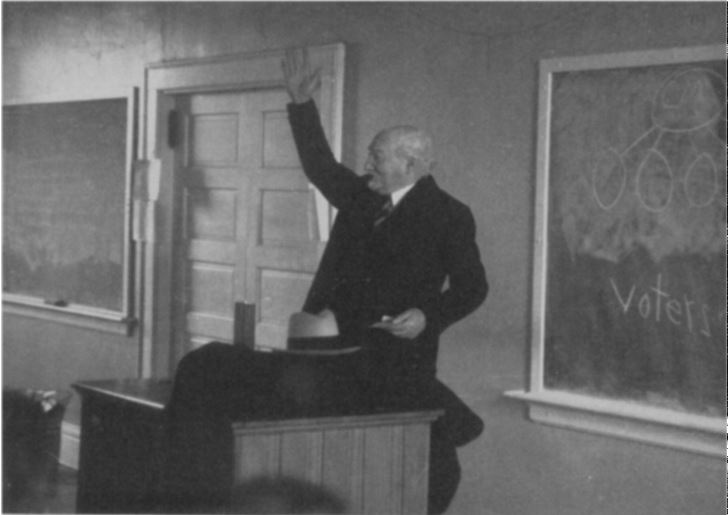Bob LaFollette, Joe McCarthy and Scott Walker are among Wisconsin’s most famous politicians, but a century ago, Sol Levitan might have been the most unlikely. Sol Levitan was Wisconsin state treasurer from 1923 to 1933 and again from 1937 to 1939.
He was the first Jewish state treasurer in the state,” says Jonathan Pollock, who teaches history at Madison College. “But what made Levitan really unique is that more than other Jewish politicians before or I’d say really since, Levitan really campaigned on his Jewishness. He sort of put his Jewishness front and center and made that a big part of who he was.”
It was a notable achievement at a time when the KKK was ascendant. Wisconsin had a fairly active KKK in the 1920s with significant activity around the state.
“When you look at the Jewish politicians for the most part in the 1920s, you’ve got people who either had come to the US as children and lost their Yiddish accents, or they’d worked with dialect coaches to minimize it or get rid of it,” says Pollock. “And Levitan absolutely kept to his accent, he really kind of amped it up.”
Levitan was born in east Prussia in 1862. He then was in Odessa, in what’s now near Ukraine, working for an uncle in his store. His uncle then gave him a choice: giving him his store in the Russia or sending him off to America. Levitan chose America. In 1881, when he was 19 years old, Levitan arrived in Baltimore. From there, he headed west.
“And like a lot of peddlers did, he found a town where it looked like a good place to open a business, and that was New Glarus,” describes Pollock.
Levitan moved to Madison in 1905 to open a store in a bigger city. The move also put in touch with the Progressives.
“By like the late teens or so, Levitan started making noise about running for office himself. And initially – he wanted to run for governor, and the Progressives were kind of, they were like, no, you can’t do that,” says Pollock.”Whether or not the Progs themselves were anti-semitic is open to debate.”
Undeterred, Levitan eventually ran for state treasurer. He was an energetic campaigner and pulled in more votes than any other Progressive candidate. Levitan’s win attracted national attention because Wisconsin was not seen as a center of Jewish activity. Stories on him ran in New York City and Chicago, among others.
The state’s small Jewish community in Madison and south central Wisconsin felt pride in his win but also discomfort at the way he flaunted his Jewishness. That very thing is what attracted Pollock to Levitan’s story.
“His take on what it meant to run for office as a Jewish guy seemed so far removed from any of the other Jewish politicians I’d encountered over the years,” says Pollock. “I don’t think we’re going to see people like that anymore, certainly. And even in the years since he left office in 1939, we’ve had plenty of other Jewish politicians elected to office in Wisconsin but none of them have really taken the Sol Levitan route.”











